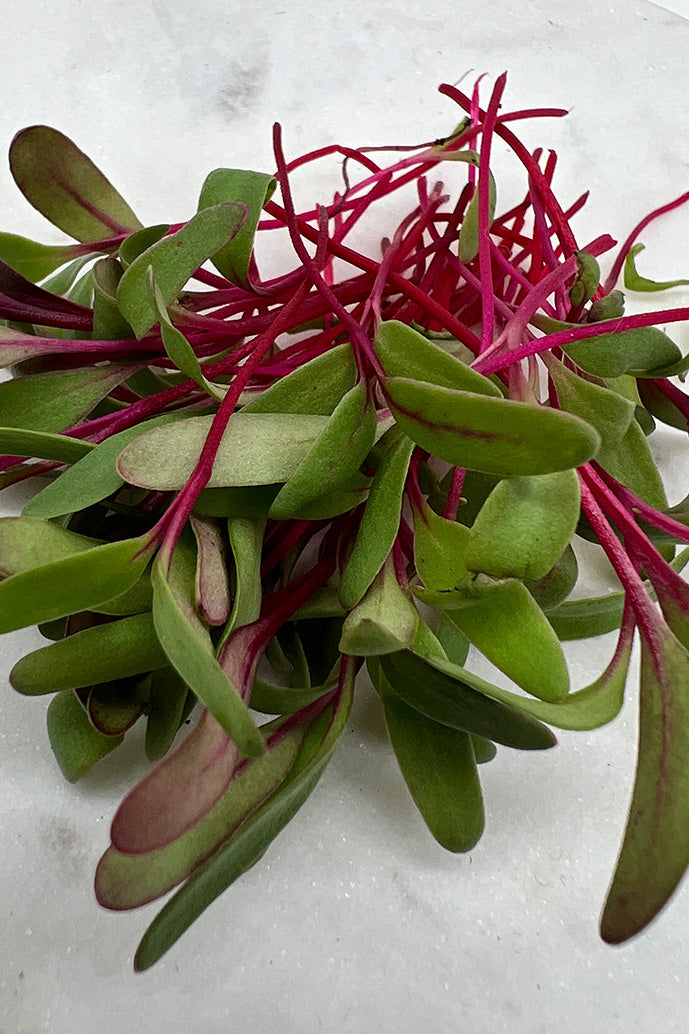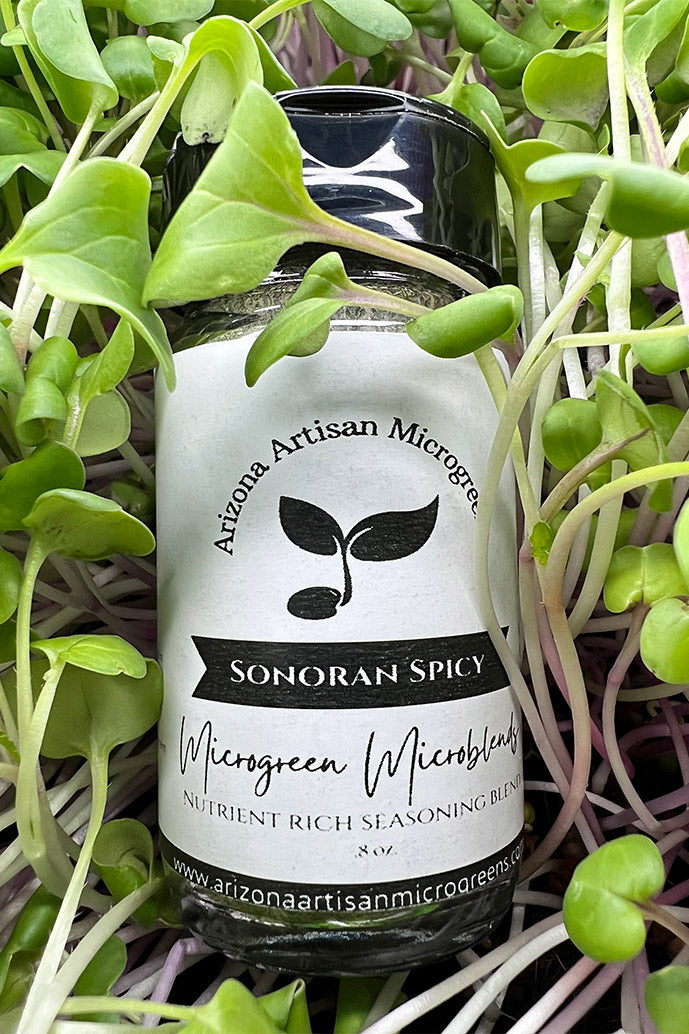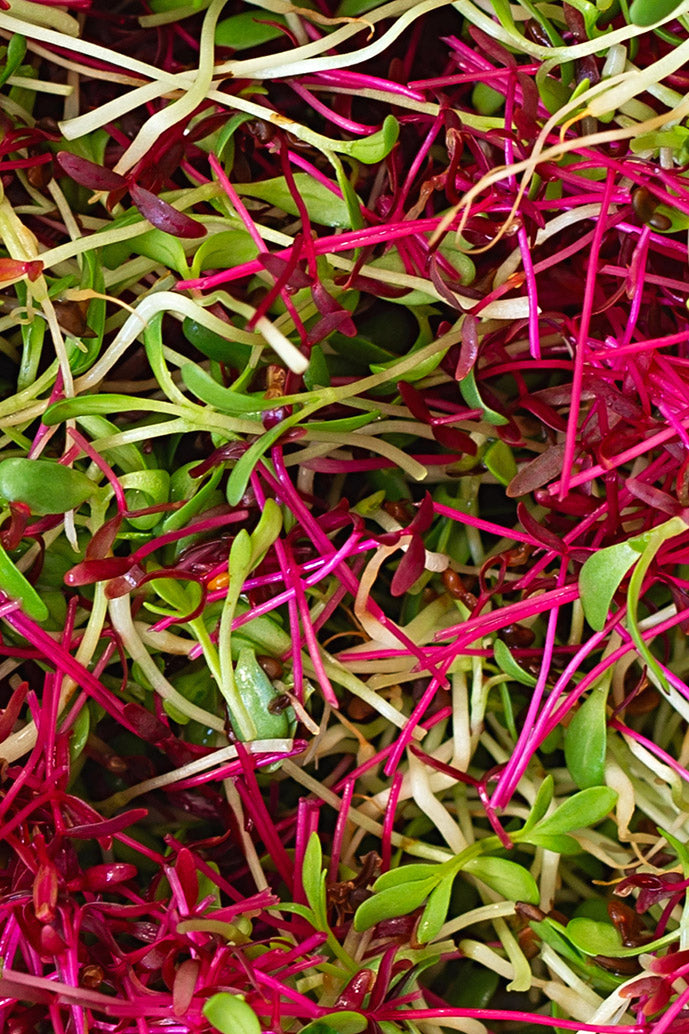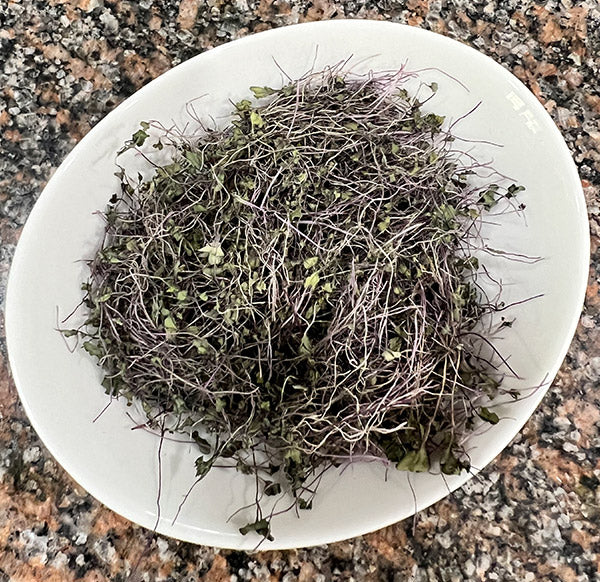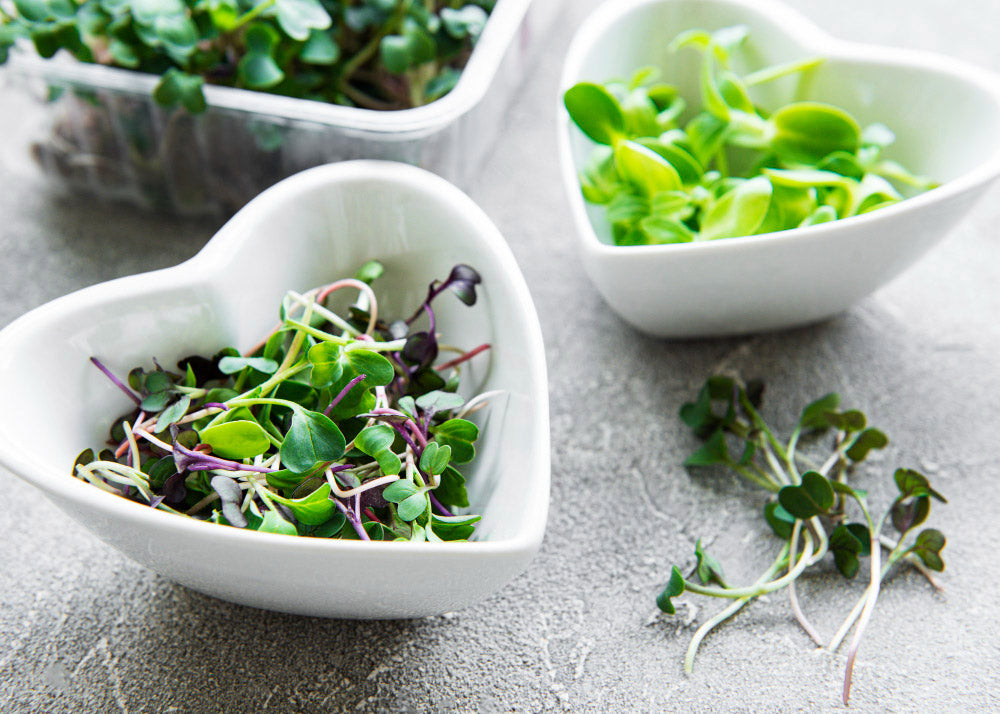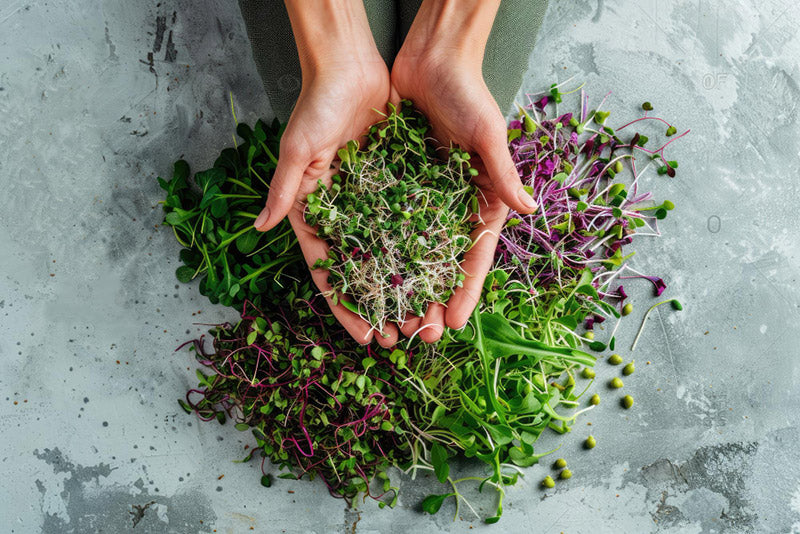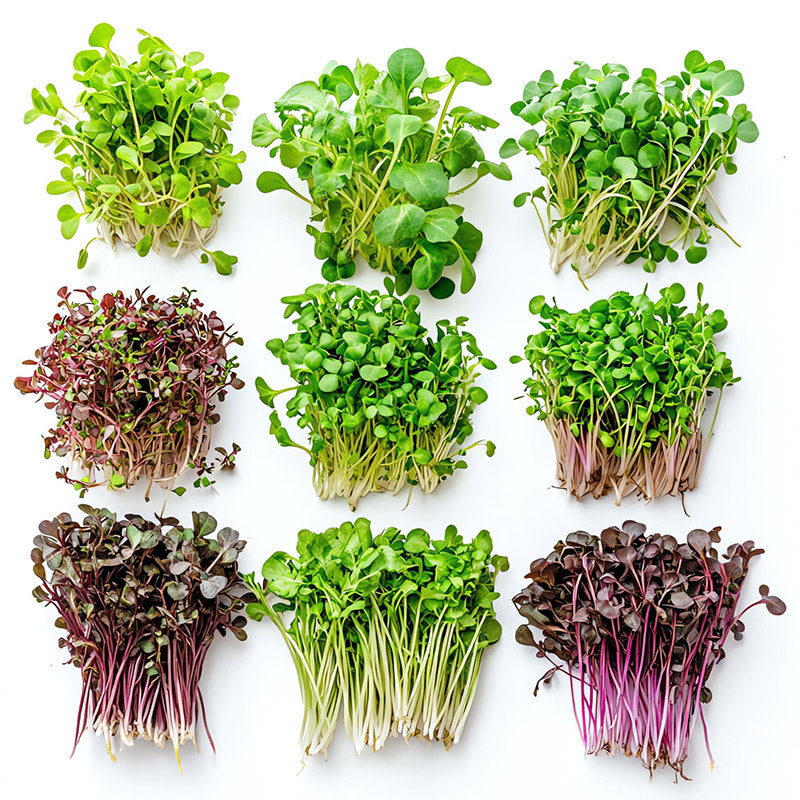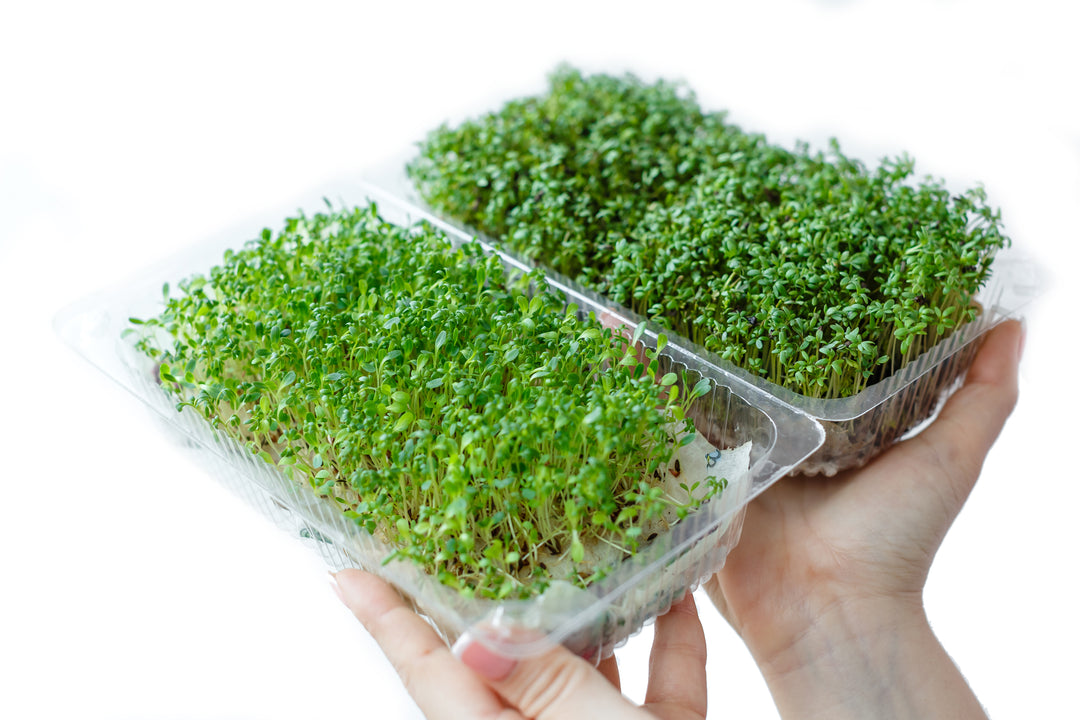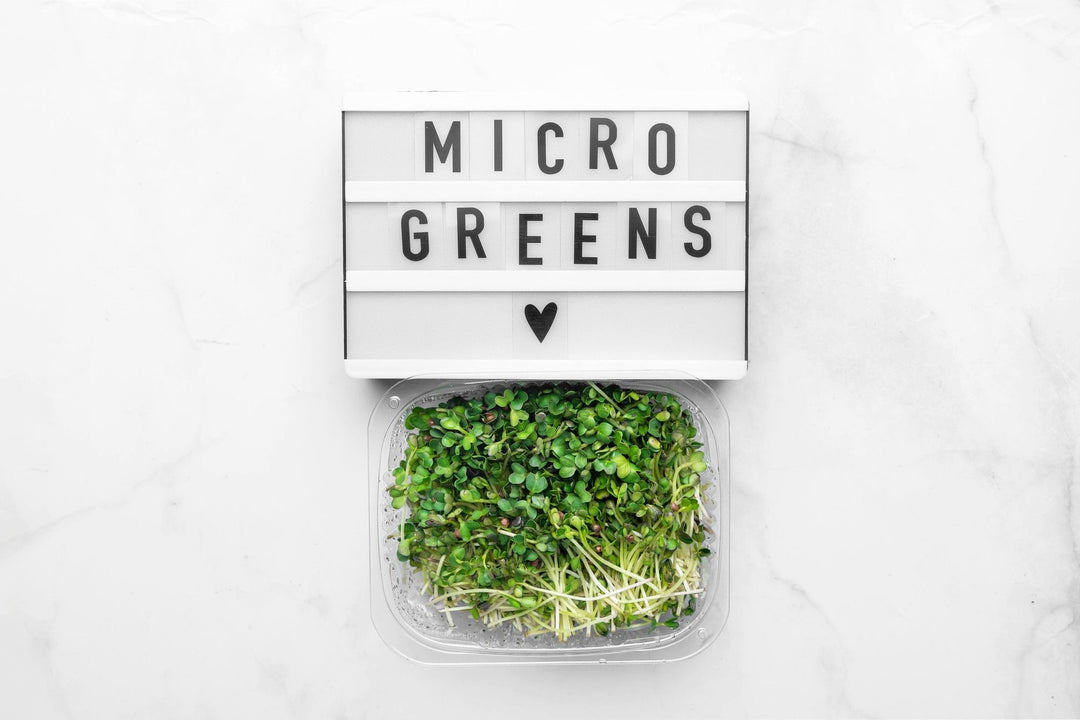Microgreen Nutritional Benefits

Microgreens are little micronutrient powerhouses in tiny plant form!!
What nutrients can be found in microgreens?

Vitamin A, vitamin C, vitamin K, vitamin E, Vitamin B1 (Thiamine), Vitamin B2 (Riboflavin), Vitamin B3 (Niacin), Vitamin B5 (Pantothenic acid), Vitamin B6 (Pyridoxine), Vitamin B9 (Folate), Vitamin B12 (Cobalamin)

Minerals are an essential nutrient for humans, and our large variety of microgreens will help keep your body healthy. Minerals play an important role in hormones and making enzymes. Your body uses them to ensure your brain, heart, bones, and muscles work properly. " Minerals are vital components of our food. They fulfill various functions, such as building materials for our bones, influencing muscle and nerve function, and regulating the body’s water balance. They also contain hormones, enzymes, and other biologically active compounds. Some minerals also have an important role in the optimal functioning of the immune system. This concerns both the innate defense system and the adaptive immune response. Accordingly, the supply of minerals can influence susceptibility to infections. Still, it also affects the development of chronic diseases." The Role of Minerals in the Optimal Functioning of the Immune System.
In micros, you will find the following minerals: calcium, Magnesium, Iron, Zinc, Potassium, Phosphorus, Copper, Nitrate, Carotene, Manganese, Selenium, Chromium, Folate, and Folic Acid.
Concentrated Antioxidants
Antioxidants reduce the risk of many diseases, help protect the body from damage by free radicals, and prevent and/or reduce damage caused by oxidation. Free radicals have been linked to health conditions like diabetes and cancer. In addition, antioxidants may improve skin texture and appearance. They are also known to protect skin cells. Support your immune system and help keep your gut microbiome healthy. “Vegetables are already high in vitamins, but the minerals and phytochemicals in microgreens offer even more nutritional value,” says registered dietitian Kayla Kopp, RD, LD. Continues. “As a bonus, many of the nutrients in microgreens act as antioxidants, with the power to prevent cell damage.”

Phytonutrients
Beta-carotene- Improve immune system, vision, skin, and bone health.
Lutein- protects heart health and eye health. Prevents certain types of cancer.



